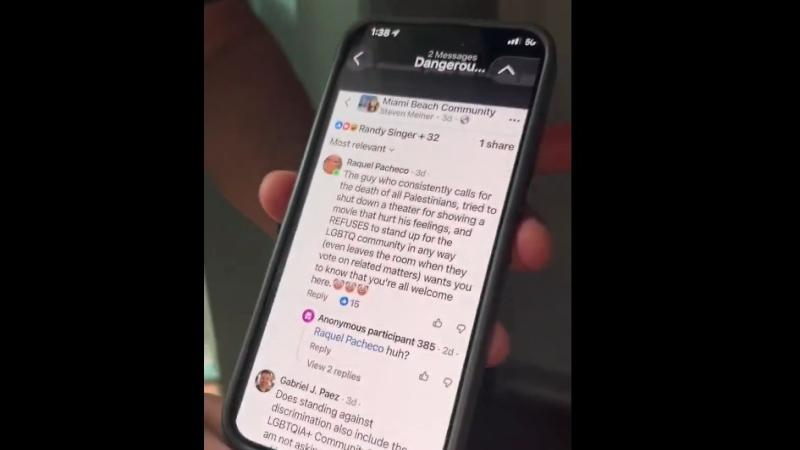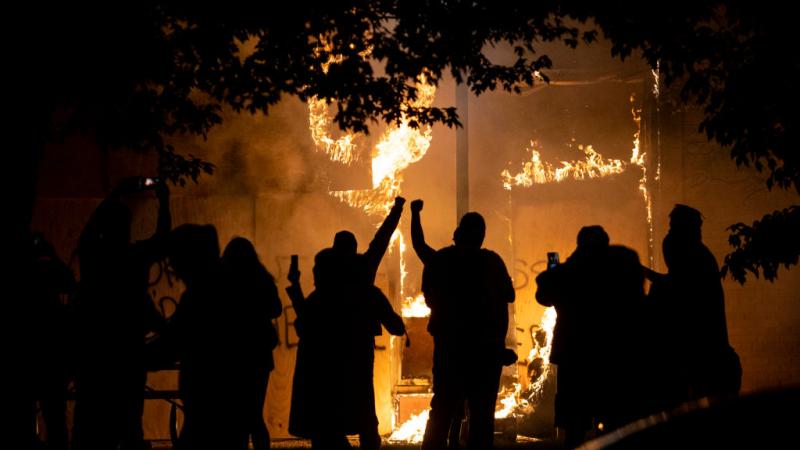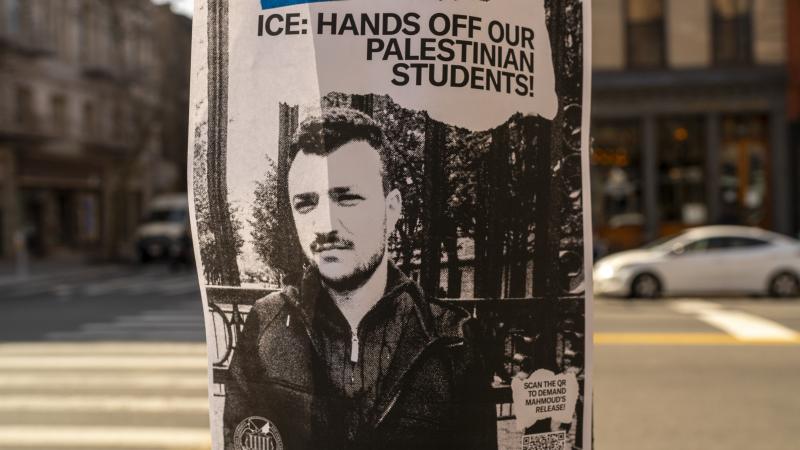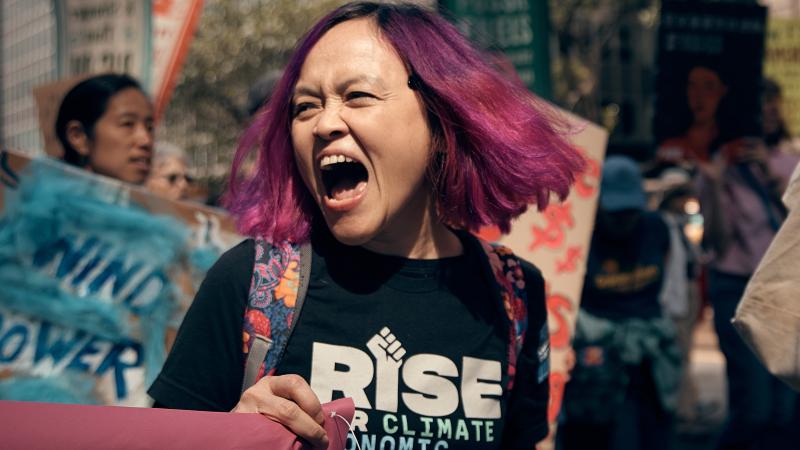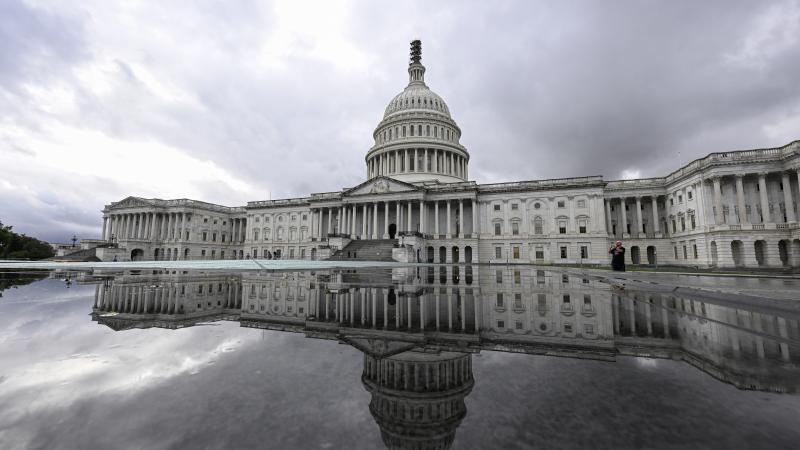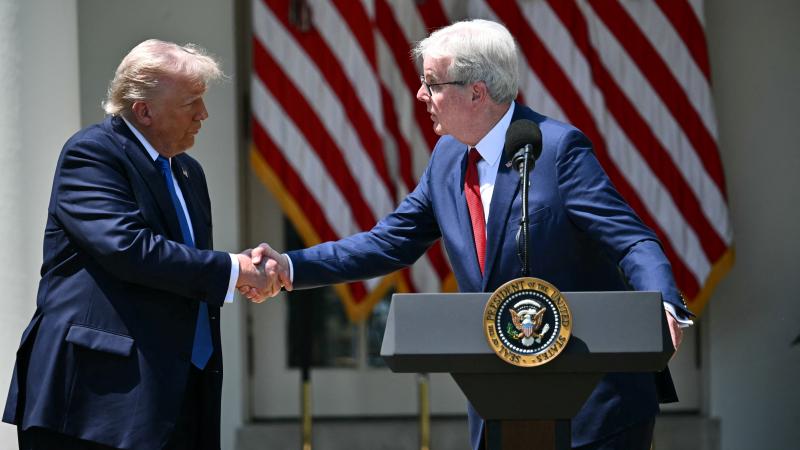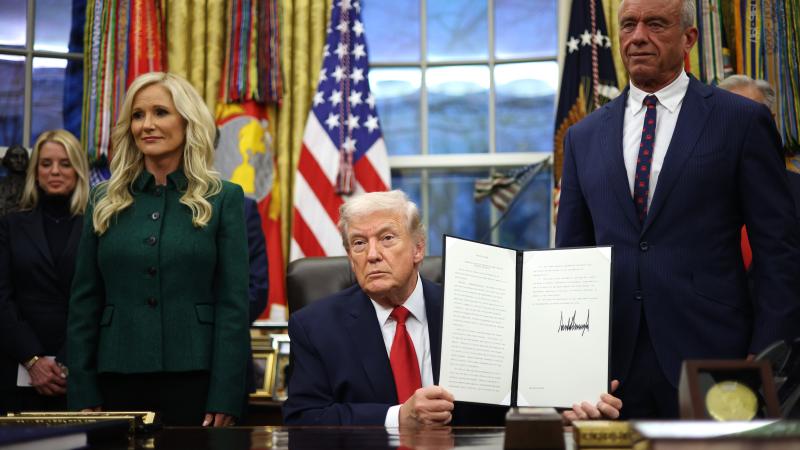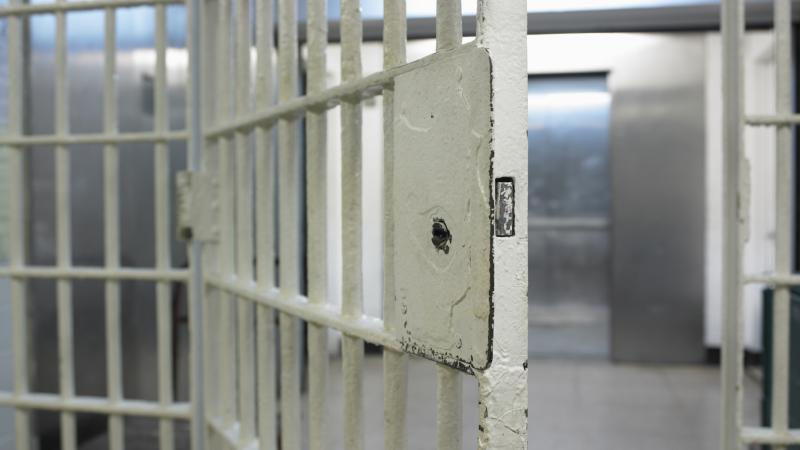Free speech for students disappears if SCOTUS doesn't protect 'Only Two Genders' shirt: groups
"Let's Go Brandon," pro-life expression, "Don't Tread on Me" endangered as well, SCOTUS hears in friend-of-the-court briefs. If transgender students mature enough to choose medical interventions, why not to hear disagreement?
"There Are Only Two Genders." "Let's Go, Brandon!" The Gadsden flag and "Don’t Tread On Me.”
Nondisruptive student expressions of protest, ideology and humor face elimination in public schools if the Supreme Court doesn't rebuke a federal appeals court that approved bans on "demeaning message[s]" that could "poison" the school environment, free speech, religious freedom, conservative and pro-life groups told the high court in friend-of-the-court briefs.
They were joined in their support of censored Massachusetts student Liam Morrison by the Republican attorneys general of South Carolina, West Virginia and 16 other states, as well as by a Colorado student who last year was banned from wearing a backpack with the Gadsden flag – a supposed "slave trade" symbol – until his governor intervened.
The 1st U.S. Circuit Court of Appeals upheld Middleborough Public Schools' prohibition on Morrison wearing the two-genders shirt to protest its encouragement to students to express LGBTQ messages, then another that replaced "only two" with "censored" after the first ban.
All nominated by Democratic presidents, the three-judge panel narrowly construed the landmark SCOTUS precedent Tinker, which upheld students' right to wear antiwar armbands at school, as not covering expression that "assertedly demeans characteristics of personal identity," even if done "passively, silently, and without mentioning any specific students."
Restrictions on gender-identity protest are also at issue in a newer lawsuit against a school district in New Hampshire, which is part of the Boston-based 1st Circuit, that banned attendees at high school girls' soccer games from wearing "XX" armbands to protest male eligibility to play.
The Cincinnati-based 6th Circuit, covering Kentucky, Michigan, Ohio and Tennessee, could provide the impetus for SCOTUS involvement through a contrary ruling to the 1st Circuit's.
The full appeals court voted Nov. 1 to rehear a pre-enforcement challenge to Olentangy Local School District's ban on students "repeatedly and intentionally using non-preferred pronouns to refer to their classmates," which a divided three-judge panel declined to block this summer.
The 6th Circuit already prohibited Ohio's Shawnee State University from punishing a professor refused to call a student by preferred pronouns, followed by a hefty settlement.
The Pacific Justice Institute, Concerned Women for America and National Legal Foundation told SCOTUS that policies like Middleborough's "have proliferated throughout the country" on the assumption that gender-confused kids are "fragile souls who need protection from the knowledge that others disagree with the very concept" that gender isn't fixed.
"At the same time, [Middleborough] champions the presumption that these same children are fully capable of deciding for themselves" to engage in "life-changing" medical interventions, their admittedly short brief says, arguing kids cannot be both mature enough to choose so-called gender affirming care and so immature they can't hear disagreement on gender identity.
"Schools around the country have used these speech codes to censor speech on one side of the issue," wrote Parents Defending Education, the plaintiff in the Olentangy lawsuit.
It noted courts upheld a Michigan district prohibiting clothing with the euphemism "Let's Go, Brandon" as "lewd, indecent, vulgar, or profane" because it alluded to a profane chant – now at the 6th Circuit – and a California district punishing a first-grader for giving a black classmate a drawing that read "any life" matters, as of last week awaiting oral argument at the 9th Circuit.
Middleborough "permitted – indeed, encouraged – speech supporting the idea that there are more than two genders" while prohibiting Morrison's opposite view, PDE said. "That error alone warrants this Court’s review (and reversal)."
With the elimination of federal abortion rights and the issue's return to states, "the need to protect the ability of pro-life citizens to exercise their First Amendment rights to persuade their fellow citizens," including in schools, "has taken on new urgency," wrote the Life Legal Defense Foundation and Young America's Foundation.
California's Buchanan High School banned a YAF chapter member from displaying a "Pro-life Timeline" on fetal development because it needs to "stay neutral on controversial topics" like biology, yet also allows teachers to violate district policy by hanging "pro-LGBTQ decorations in their classrooms," they said.
Florida's Sebring High School went even further against its YAF chapter, "unilaterally removing their Pro-life Timeline from their approved display, apparently because another student complained," and subjecting YAF alone to speech-related preapproval requirements until "legal counsel stepped in," the groups also wrote.
"This case is about the right of the student to reply to the opinions expressed by school officials," National Religious Broadcasters wrote. "The school officials have made it abundantly clear that [Morrison's] views are wrong and unwelcome" yet the 1st Circuit evaluated this case as if the only message that transgendered students received in their school was his shirt.
The Republican AGs' brief, mostly representing the South, Midwest and Mountain West, argues the ruling "undercuts one of the most important purposes of public education: forming civic virtues by pursuing truth – even when uncomfortable."
They said the 1st Circuit is at odds with peers, creating a "speech-hostile standard" that lowered the bar for "what facts a school must show to justify a restriction" and "effectively sanctioned viewpoint discrimination in public schools" against the mildest displays, with no disruption.
The Tinker siblings wore antiwar armbands when "the national temperature on the Vietnam War had hit a boiling point," and their Iowa school district treated them as an unacceptable distraction from classwork that also caused "emotional turmoil" by reminding kids of "the wounded and the dead" who were their neighbors, the brief states.
"Amid this bitter, explosive, and disruptive debate" like on gender identity, SCOTUS demanded "evidence of a major disturbance before policing speech" and ordered judges to "not just rubber stamp school decisions, but to carefully balance order and civic virtue," the AGs said.
The Foundation for Individual Rights and Expression echoed the AGs by deeming student free speech "essential to public education" because, as the Tinker court said, students must "live in this relatively permissive, often disputatious, society."
Schools are prone to "censor broad swaths of controversial matters of public debate and disagreement" due to "the push and pull of the culture wars in our society" but "must prepare students to learn the values of tolerance and civil debate," FIRE said, noting SCOTUS reaffirmed this just three years ago in the Mahanoy profane-cheerleader case.
The 1st Circuit "fundamentally redefines the concept of substantial disruption" by speculating that speech may cause "subjectively harmful psychological effects," and even contradicted its own 2020 precedent that "the speech must be targeted at another student" before officials can quash it as an "invasion of the rights of others" under Tinker, the free speech group said.
Jaiden Rodriguez got the backing of Colorado Democratic Gov. Jared Polis – recently in the news for celebrating Robert F. Kennedy Jr.'s nomination for secretary of health and human services – when his Colorado Springs charter school ordered then-12-year-old Rodriguez to remove his Gadsden flag patch and others, as documented in viral video by his mother.
He and the Claremont Institute's Center for Constitutional Jurisprudence, which is supporting his First Amendment lawsuit against Harrison School District 2, reminded SCOTUS that the justices themselves recognized "there are in fact, only two genders" in the transgender employment discrimination precedent Bostock.
Without the requisite substantial disruption, "if a student listener experiences psychological distress when exposed to speech on a matter of public concern," the school has a duty to "help that student develop resilience and a sense of self-worth that comes with responding to and attempting to refute the disagreeable speech," their brief states.
SCOTUS should take the case "to emphasize that Tinker is not a 'get-out-of-jail-free' card for schools that want to suppress traditional or conservative ideas, much less biological facts that might make some uncomfortable," they wrote.
The Facts Inside Our Reporter's Notebook
Links
- Gadsden flag â a supposed "slave trade" symbol â until his governor intervened.
- 1st U.S. Circuit Court of Appeals upheld
- newer lawsuit against a school district in New Hampshire
- full appeals court voted Nov. 1 to rehear a pre-enforcement challenge
- divided three-judge panel refused to block
- 6th Circuit already prohibited Ohio's Shawnee State University
- hefty settlement
- Pacific Justice Institute, Concerned Women for America and National Legal Foundation
- Parents Defending Education
- now at the 6th Circuit
- California district punishing a first-grader
- awaiting oral argument at the 9th Circuit
- Life Legal Defense Foundation and Young America's Foundation
- National Religious Broadcasters wrote
- Republican AGs' brief
- Foundation for Individual Rights and Expression
- Mahanoy profane-cheerleader case
- 2020 precedent
- celebrating Robert F. Kennedy Jr.'s nomination
- documented in viral video by his mother
- He and the Claremont Institute's
- First Amendment lawsuit against Harrison School District 2
